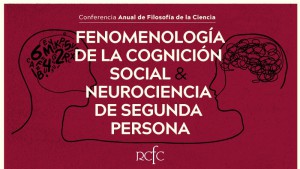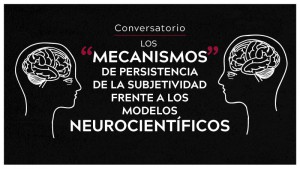
Last October 24, the Colombian Journal of Philosophy of Science and the Humanities Department of Universidad El Bosque hosted the conference “Phenomenology of social cognition and neuroscience of the second person”, where Ivana Anton Mlinar, associated researcher of the Project “The Brain and the Personal Self”, discussed social cognition as an alternative to the various theories of mind, which suggests that the existence of other minds is theoretical, thus contrasting with phenomenology. Here you may find the abstract of her presentation:
Phenomenology of Social Cognition and Second Person Neuroscience .
.
Within the framework of social cognition, the various ways of understanding and explaining what has been called “the problem of other minds”, has given rise, correlatively, to various modes of experimentation and results.
Much of the discussion and studies on the nature of social cognition, which has also been understood as a second-person perspective, has taken place within the framework of the so-called “theory of mind”, in its various variants. This account holds – basically – that the understanding of the mind of others is theoretical, that is to say, that the attribution of mental states is inferential, postulated theoretically and predictive, which is equivalent to denying that we have direct experience of them.
On the other hand, phenomenology, although a philosophical enterprise, does not exclude that its analysis can be motivating and heuristic for empirical studies in the field of cognitive sciences. It marks, on the contrary, the embodied and embeded nature of self-experience. In the encounter with another we do not face neither a mere body nor a hidden psyche, but a unified whole. Empathy is thus discovered as a form of intentionality in which one addresses the lived experience of the other, which implies that we experience the other directly as an intentional being whose actions and gestures express their experiences or mental states.
Ivana Anton Mlinar also participated at a discussion with Dr Fabián Cremaschi, neurosurgeon, where multidisciplinary epistemological issues crossing philosophy, psychiatry and neuroscience were discussed. Here, the abstract of her participation:
 The “Mechanisms” of Persistence of Subjectivity Facing Neuroscientific Models.
The “Mechanisms” of Persistence of Subjectivity Facing Neuroscientific Models.
I will analyze various pathological neuropsychiatric experiences in which the characteristic features of subjectivity are affected, to such an extent that, in some cases, they are described as the loss of the first-person perspective, the essential core of the subjective condition. I will offer some descriptive arguments that try to show what a minimal self can consist of that does not get lost even in neuro- and psychopathologies, including the case of a puzzling phenomenon such as terminal lucidity.
